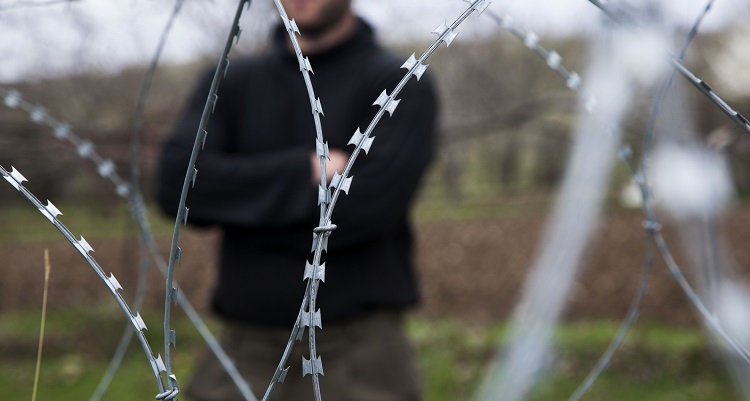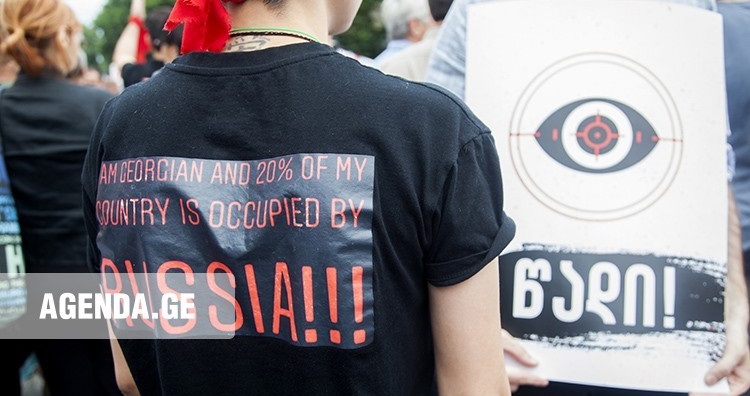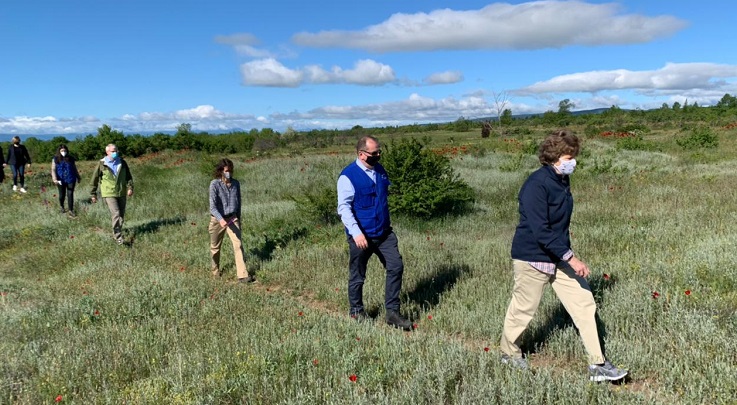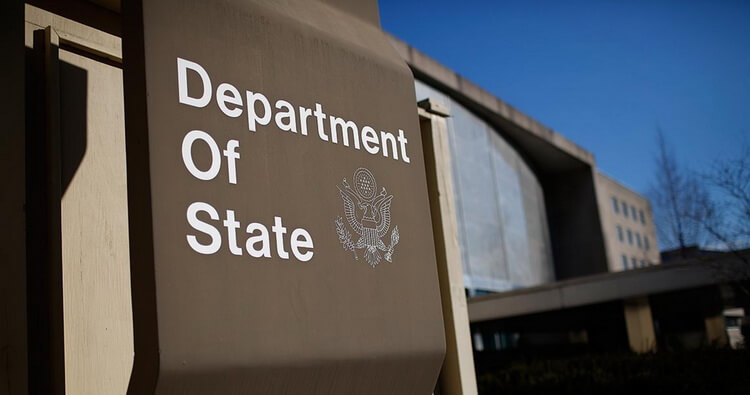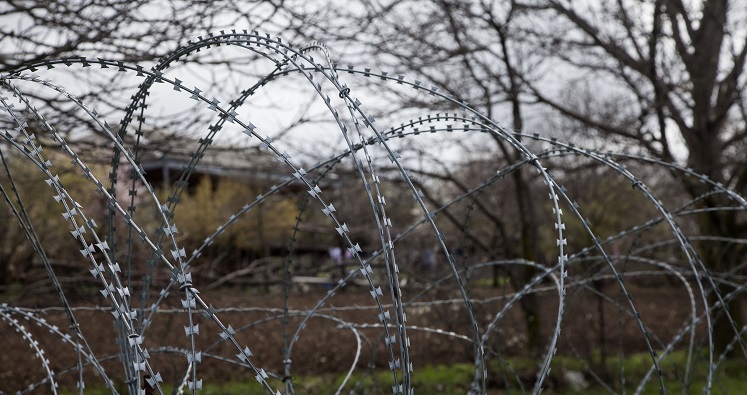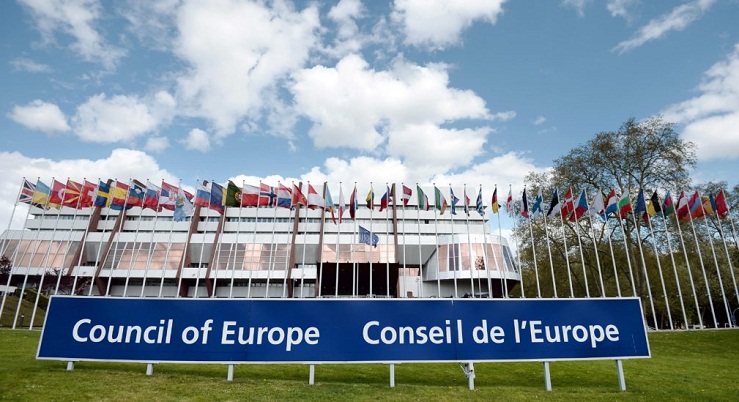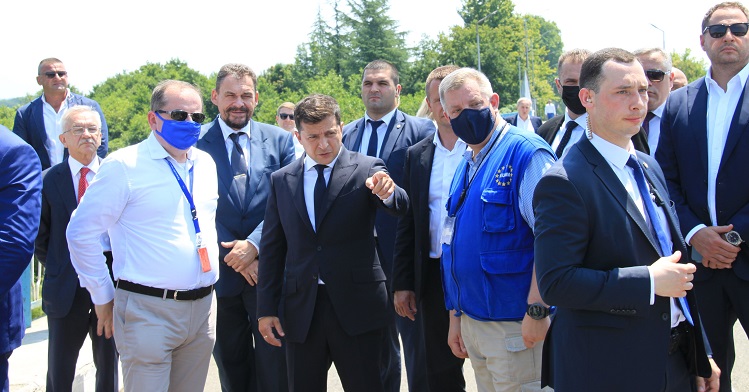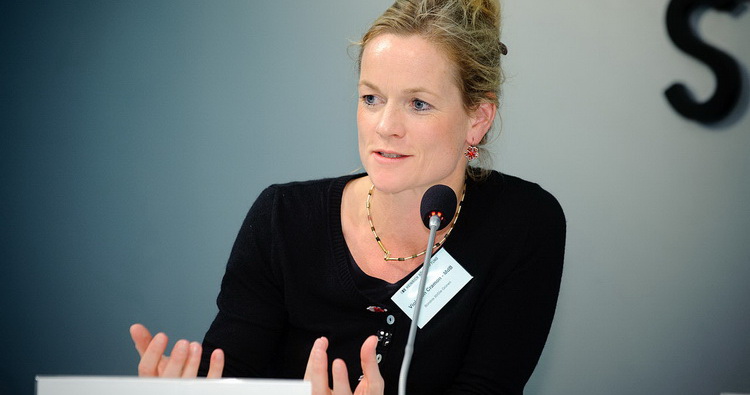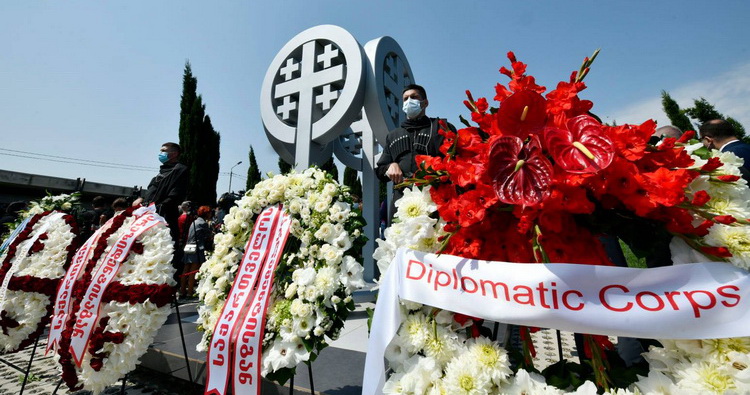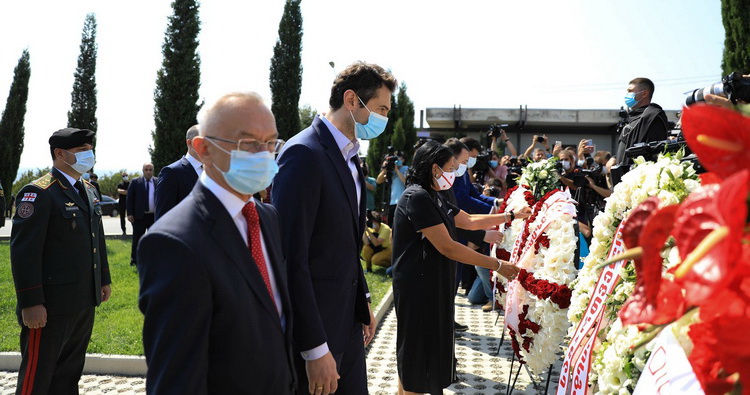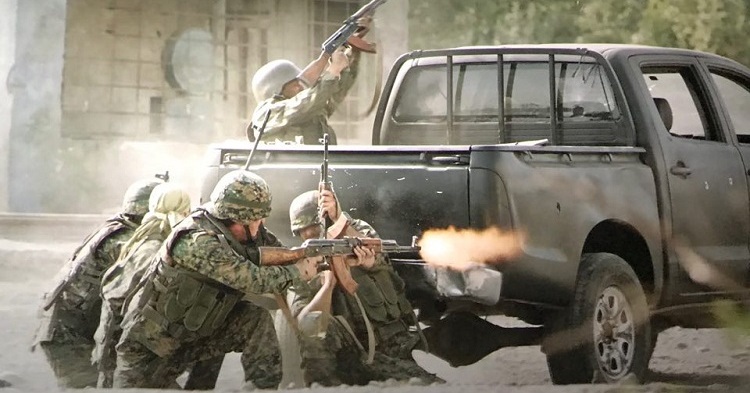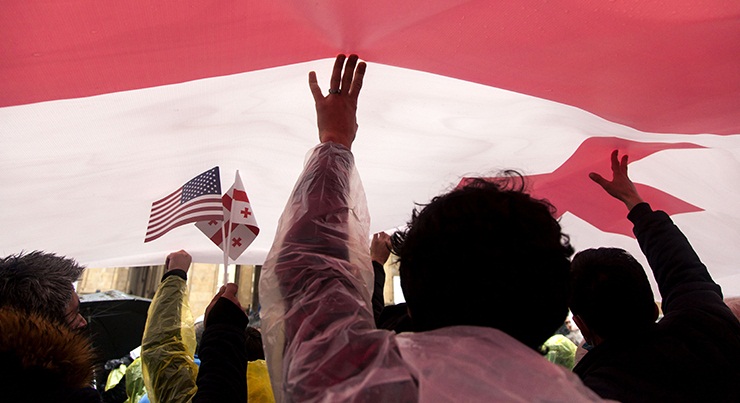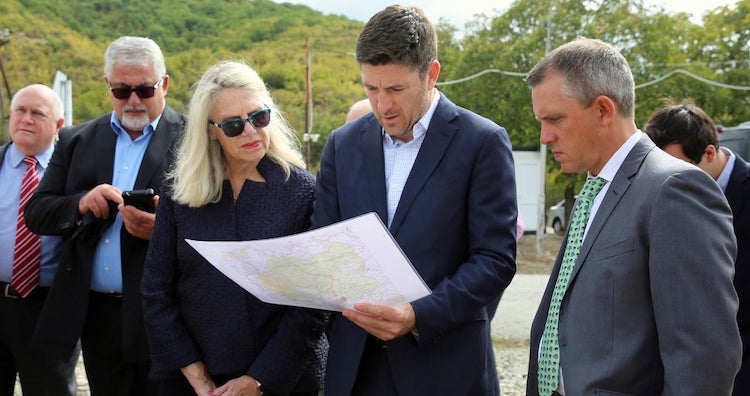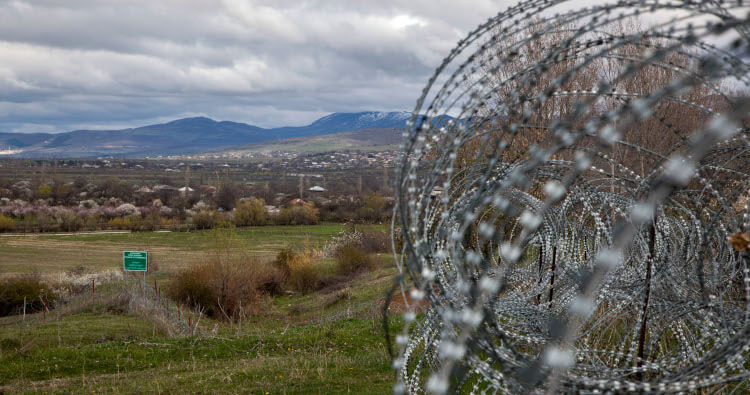Foreign ministry asks international community for "essential effort" for ending occupation on eve of anniversary
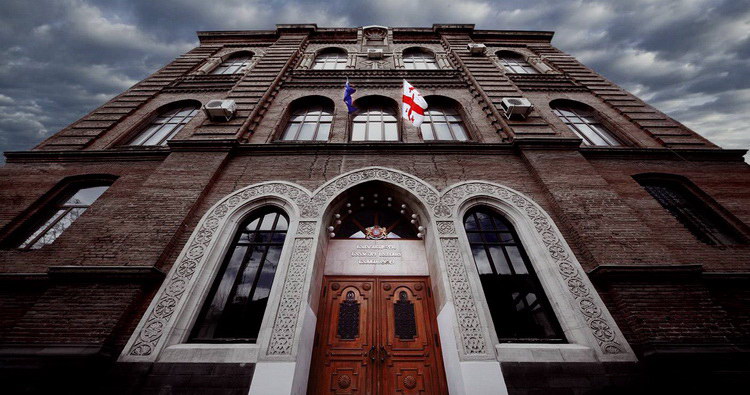
The foreign office released its statement on the eve of the 13th anniversary of the 2008 war between Russia and Georgia. Photo via Ministry of Foreign Affairs.
The Ministry of Foreign Affairs of Georgia has appealed for "essential effort" from the international community in the process of ending the ongoing occupation of Abkhazia and Tskhinvali (South Ossetia) regions of Georgia, in a release on the eve of the 13th anniversary of the occupation.
In the statement made to mark the date, the ministry asks the country's international partners for substantial assistance in ending the occupation, ensuring return of refugees from the two regions and giving an assessment to Russia's "continued aggressive politics in the wider Black Sea region."
The foreign office's release reiterates the Georgian government's policy of peaceful resolution of the conflicts that have their source in the 1990s and were again flashpoints in the 2008 war between Russia and Georgia. Georgia is "fully complying" with the August 12, 2008 ceasefire agreement that ended the five-day war, the ministry says, and is expecting relevant steps from Russia.
The MFA says its course is aimed at ending the occupation while also reconciling and restoring trust between "populations of Georgia divided by the occupation lines". Among initiatives for peaceful processes in conflict areas is work for "deepening civic involvement" between communities divided by the administrative boundary line marking the occupation.
Initiatives including the Step Towards a Better Future project of the state and the formation of a government commission for ending the occupation and a peaceful resolution of the conflicts are mentioned in the ministry's statement on the eve of the 2008 conflict anniversary.
The release also includes a detailing of violations in the occupied regions, under de-facto control of Russian occupying forces and local "governments". The MFA notes violations of fundamental rights on the territories including ethnic cleansing, destruction of Georgian villages and prevention of a return of refugees.
The ministry's comments mention rulings of the European Court of Human Rights that place responsibility for these and other violations on Russia as the occupying force, in addition to the ongoing refusal of the Russian government to respect terms of the August 12 ceasefire.
An appreciation of the "resolute support" for Georgia's sovereignty and territorial integrity from the international community is also noted in the statement, along with a recognition of the "significant role" of international organisations in supporting a peaceful resolution of the conflicts.
 Tweet
Tweet  Share
Share

